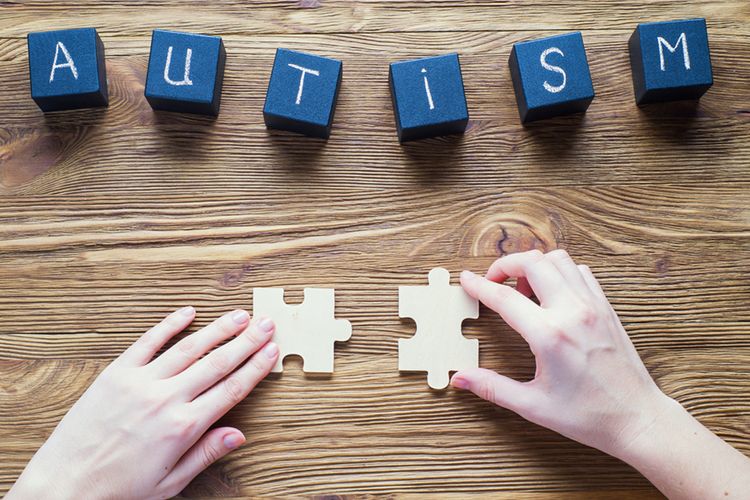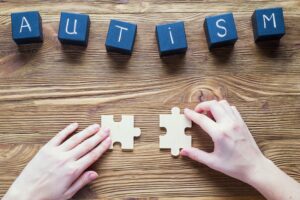

Welcome to our blog as we delve into the intriguing world of autism, a topic often surrounded by misconceptions and misunderstandings. Today, we explore the unique journey of adults who are only diagnosed with autism later in life. Join us on this enlightening exploration of the causes, challenges, and support for adults navigating the complexities of autism in adulthood.
What is Autism?
Autism is a neurodevelopmental disorder that affects how individuals perceive the world and interact with others. It is characterized by challenges in social communication, repetitive behaviors, and sensory sensitivities. Each person with autism is unique, with a diverse range of strengths and differences that shape their experiences.
Individuals with autism may have difficulty understanding social cues, expressing emotions, or engaging in typical conversations. They may also exhibit intense focus on specific interests or engage in repetitive movements or routines. Sensory processing differences can lead to heightened sensitivity to sounds, lights, textures, or tastes.
Despite these challenges, many individuals with autism possess exceptional talents such as artistic abilities, attention to detail, or deep knowledge in specialized areas. Understanding and acceptance are crucial in supporting individuals with autism to thrive and reach their full potential.
Misconceptions about Autism
Misconceptions about autism are prevalent in society, leading to misunderstandings and stigmatization. One common misconception is that all individuals with autism have savant abilities or extraordinary talents. In reality, autism is a spectrum disorder with a wide range of characteristics and abilities.
Another misconception is that people with autism lack empathy or emotions. This stereotype overlooks the diverse ways individuals with autism express their feelings and connect with others. Additionally, there’s a myth that only children can be diagnosed with autism, ignoring the fact that many adults receive diagnoses later in life.
Some mistakenly believe that vaccines cause autism, despite scientific evidence disproving this claim. Such misinformation can fuel unnecessary fears and hinder efforts to support individuals on the spectrum. It’s crucial to dispel these misconceptions and promote understanding and acceptance of neurodiversity within our communities.
Early Diagnosis vs. Late Diagnosis
Early diagnosis of autism is often ideal as it allows for early intervention and support. Children who are diagnosed young have the opportunity to receive specialized therapies tailored to their needs, improving their outcomes in the long run. However, some individuals may not receive a diagnosis until adulthood, leading to unique challenges. Late diagnosis of autism in adulthood can bring about a sense of relief for some individuals who finally understand why they feel different or struggle with certain aspects of life. It can provide validation for their experiences and help them make sense of past difficulties that were previously unexplained.
On the other hand, late diagnosis can also present its own set of challenges, such as navigating relationships, education, and employment without the necessary support systems in place. Adults with undiagnosed autism may face increased levels of stress and anxiety due to feeling misunderstood or out of place in social settings. Whether someone receives an early or late diagnosis of autism, what matters most is access to understanding resources and support networks that can help them navigate life more effectively.
Causes of Autism in Adulthood
Many adults receive an autism diagnosis later in life, often leaving them wondering about the causes. While there is no single known cause of autism, research suggests a combination of genetic and environmental factors may play a role in its development. Genetic predisposition is a significant factor, as individuals with a family history of autism are more likely to be diagnosed themselves. Additionally, certain genetic mutations or chromosomal abnormalities have been linked to an increased risk of developing autism later in life.
Environmental influences such as exposure to toxins during pregnancy or early childhood, maternal health conditions, and complications during birth can also contribute to the development of autism in adulthood. Researchers continue to study these complex interactions to gain a better understanding of the roots of adult-onset autism.
Challenges Faced by Adults with Undiagnosed Autism
Navigating social interactions can be a significant challenge for adults with undiagnosed autism. Often misunderstood or misinterpreted, they may struggle to communicate effectively, leading to feelings of isolation and frustration. Simple tasks like maintaining eye contact or interpreting non-verbal cues can pose immense difficulties in daily life. Managing sensory sensitivities is another hurdle faced by adults with undiagnosed autism. Bright lights, loud noises, or certain textures can be overwhelming and trigger anxiety or meltdowns without proper understanding and support from others. This constant sensory overload can make it challenging to focus, leading to difficulties in work or social settings.
Additionally, coping with change and unpredictability can be particularly stressful for individuals with undiagnosed autism. Routine disruptions or unexpected events may cause heightened levels of anxiety and discomfort due to their need for structure and predictability in their environment. The challenges faced by adults with undiagnosed autism highlight the importance of awareness and early diagnosis to provide appropriate support tailored to their specific needs.
Treatment and Support for Adults with Late Diagnosis of Autism
Upon receiving a late diagnosis of autism in adulthood, individuals may benefit from various treatment and support options tailored to their specific needs. Therapy sessions, such as cognitive behavioral therapy or speech therapy, can help adults with autism develop coping strategies for social interactions and communication challenges.
Support groups provide a valuable space for individuals to connect with others facing similar experiences, fostering a sense of community and understanding. Additionally, occupational therapy can assist in developing practical skills necessary for daily living, enhancing independence and quality of life.
Moreover, individualized education plans (IEPs) can be designed to address educational goals and accommodations that cater to the unique strengths and challenges associated with autism. Embracing neurodiversity is key in creating inclusive environments that promote acceptance and support for adults navigating life with a late autism diagnosis.
Conclusion: Importance of Raising Awareness and Understanding of Adult Autism
Raising awareness and understanding of adult autism is crucial for creating a more inclusive society. By shedding light on the causes, challenges, and available support for adults with late-diagnosed autism, we can ensure that they receive the necessary care and resources to thrive. It is important to remember that autism does not diminish an individual’s worth or potential; rather, it offers a unique perspective and set of strengths to contribute to the world.
Through education, acceptance, and access to appropriate services, we can empower adults with autism to lead fulfilling lives and reach their full potential. Let us continue to advocate for greater awareness and support for individuals with adult autism in Indonesia in 2024 and beyond. Together, we can create a more compassionate and inclusive society where everyone has the opportunity to shine brightly.







